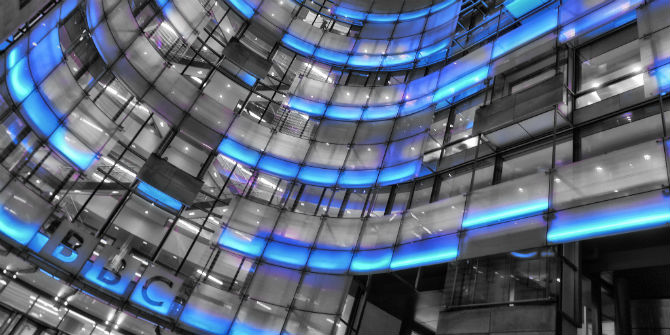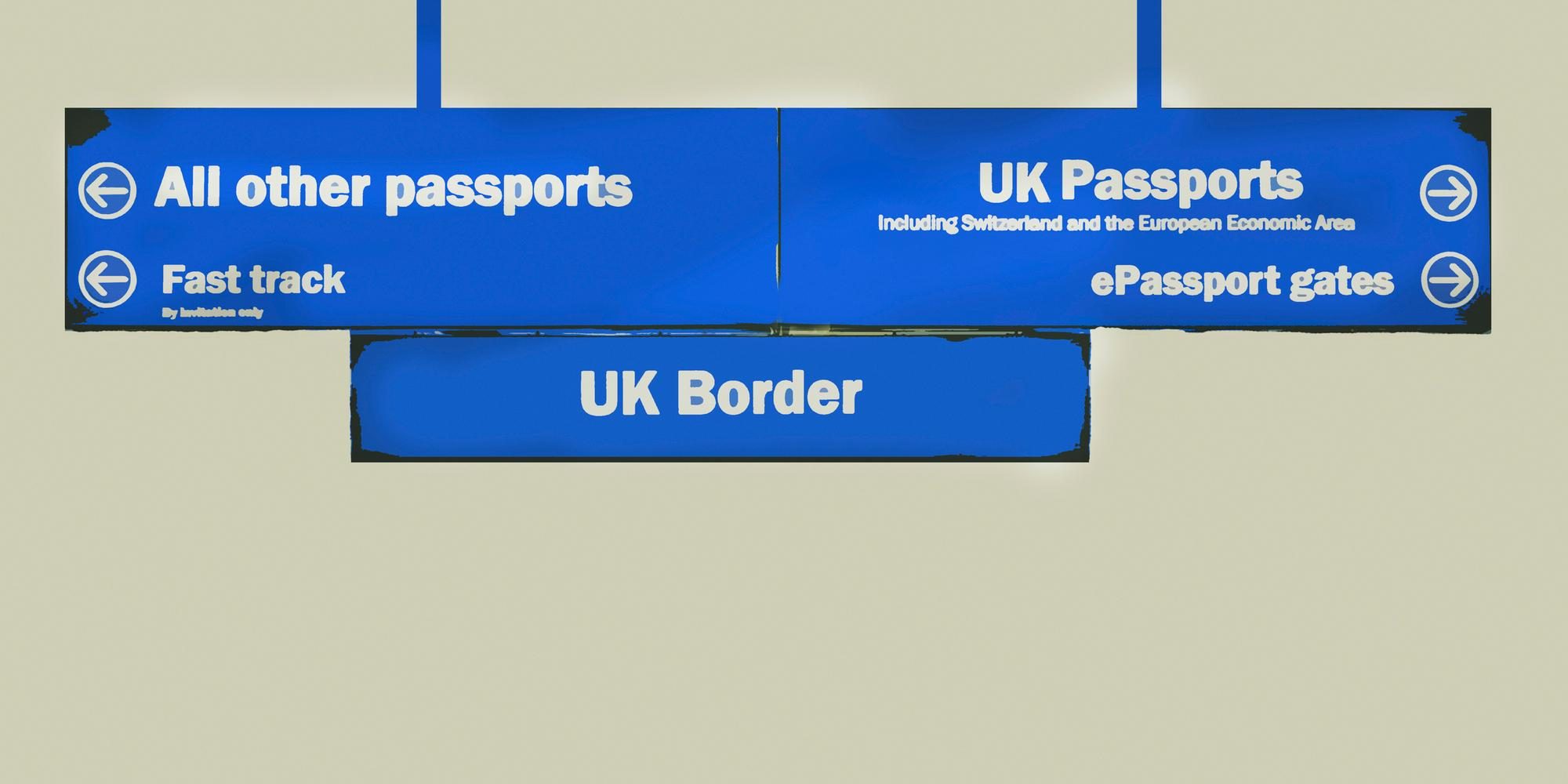 With so much British media coverage of the EU biased, if not actively hostile, the BBC has a heavy responsibility to ensure voters have enough knowledge to make an informed decision on 23 June. Mike Berry analysed BBC reporting of the Lisbon Treaty and EU budget and found it focussed unduly on infighting between Labour and Conservative politicians. Coverage also tended to be distinctly Eurosceptic.
With so much British media coverage of the EU biased, if not actively hostile, the BBC has a heavy responsibility to ensure voters have enough knowledge to make an informed decision on 23 June. Mike Berry analysed BBC reporting of the Lisbon Treaty and EU budget and found it focussed unduly on infighting between Labour and Conservative politicians. Coverage also tended to be distinctly Eurosceptic.
With so much at stake, in the referendum on 23 June, it is imperative that citizens have sufficient information to make an informed decision. However, research suggests that public knowledge and understanding of the EU is very limited. Recent research carried out by the Electoral Commission found that the ‘majority’ of people they spoke to ‘stated that their personal understanding of how the EU worked was low’ and that they felt ‘under-informed about the EU as an institution, as well as about the arguments for and against the UK remaining a member’.
One important reason for the low level of public understanding of the EU relates to the way it has been reported in the British media. Most research in this area has focused on how the British press has reported on the EU, and its findings have been consistent and unequivocal. The majority of the British press are sceptical, if not openly hostile, to the European institutions and further integration. In the tabloid press, there has been evidence of false and misleading reporting, as well as negative stereotyping which has, at times, bordered on the xenophobic. The existence of such a partisan press means that the public is especially reliant on broadcasting to provide a more balanced and comprehensive picture of Britain’s relationship with the EU.
Cross cultural studies have found that there is little broadcast reporting outside of major events (e.g. referendums and summits), that public service broadcasting tends to feature more coverage than commercial broadcasting, and that the presence of Eurosceptic parties tends to lead to an increase in reporting. Research which has focused in detail on British television reporting, has found that when it comes to reporting on the economic implications of EU membership, coverage tends to give more space to the negative consequences for both British citizens and businesses than it does, for instance, to trade benefits or the entitlements that accrue to workers though the Social Chapter.
However, much of this research is more than a decade old. More recently, in 2012-13, myself and colleagues at Cardiff University’s School of Journalism, Media and Cultural studies conducted research which analysed the BBC’s online and broadcast coverage of the UK’s relationship to the EU. This was part of a BBC-funded impartiality review which also examined the Corporation’s coverage of immigration and religion. Our broadcast sample looked at a month’s coverage of key mass audience bulletins in both 2007 and 2012. On television these were the News at Ten, Newsnight and BBC1 Breakfast News (7-8am), whilst on radio we examined the Today Programme (7-8:30am), Radio 5 Live’s Breakfast and Your Call (9-10am), plus Radio 1 Newsbeat (12:45pm).
The most striking finding to emerge from our analysis is the dominance of political (primarily Labour and Conservative) sources, who accounted for 65.0% of all source appearances in 2007 and 79.2% in 2012. The next most accessed source category was other media outlets (8.6% in 2007, 7.4% in 2012), mainly the Eurosceptic press, often in the context of a review of headlines on the Today programme. Civil society voices such as NGOs/charities/pressure groups (2.4% in 2007, 1.3% in 2012) or trade unions (0.5% in 2007, 0% in 2012) struggled to achieve any substantial access.

In terms of the stories that were covered on the BBC, we found that a single story dominated broadcast coverage in 2007 (the Lisbon Treaty) and 2012 (the EU budget). The reporting of the Lisbon Treaty in 2007 accounted for 70% of coverage of EU stories, and was almost entirely focused on the competing perspectives of Labour and Conservative MPs as to whether 1) Britain had secured its ‘red lines’ on ‘opt outs’ designed to protect the (undefined) national interest, 2) whether the Treaty was a repackaged version of the abandoned EU constitution and 3) If it was a repackaged version of the constitution whether this would necessitate a referendum.
In 2012, 72.4% of coverage focused on the parliamentary debates over the EU budget, with the leadership of the Conservative party arguing in favour of a budget freeze, against the Eurosceptic wing of the Conservative party and Labour who were arguing for a budget cut. At this time, calls from Eurosceptic Tories for an EU referendum had become much more prominent and substantial coverage was devoted to how the debate opened up fissures in the Conservative party. This focus on internal Conservative splits began dominated coverage after 53 Tory MPs revolted against their leadership and defeated the government in the Commons vote on the budget. The positive case for supporting the EU budget tended to come from EU and business sources and focused almost entirely on the economic benefits to British businesses.
Three clear interlinked conclusions arise from our research, and although we examined a relatively restricted sample of news coverage, the fact that our findings concur with other research means that we can be confident of their validity. First, BBC coverage of the European Union is very heavily focused on the perspectives of Labour and Conservative politicians. This means that audiences tend to see the EU through a national lens and the range of opinion and debate is restricted.
Secondly, reporting of the EU tends to take place through the prism of Westminster infighting, either between Labour and the Conservatives, or within the Conservative party. A key consequence of this is that much of the reporting is narrow and procedural with relatively little focus on detailed analysis of policy. Whilst viewers and listeners were exposed to substantial information about ructions at Westminster (‘The “bastards” are back. David Cameron proves unable to command even his own party over the issue of Europe’ Newsnight October 31 2012), they received far less information about the substance of the Lisbon treaty or where the EU budget was spent. This obviously has major implications for the gaps in public knowledge highlighted by the Electoral Commission report.
Thirdly, BBC coverage tends to have a distinct Eurosceptic tinge. This is not because there is any bias on the part of any journalist or the Corporation, but because stories tend to be focused on disputes between the UK and Brussels, whilst sourcing is primarily drawn from the major two parties at Westminster, where Conservative Eurosceptics (along with UKIP) have been much more vocal in criticising the EU than pro-EU Labour or Conservative politicians have been at defending it.
It is clear that the patterns in BBC coverage are determined largely by operation of straightforward news values which are amplified by the widespread perception amongst journalists that EU news is dry, complicated and of little interest to audiences. This means that unless a story is highly negative, involves a major ‘event’, fits established themes (e.g. cost, sovereignty, immigration) or involves conflict between elite political actors, it is unlikely to be reported. However this mitigates against presenting a full account of the multiplicity of ways in which the EU impacts, for good or ill, on British life. It also means that the audience is denied a rounded debate that isn’t dominated by the two main Westminster parties and the press.
One option to overcome these shortcomings would be for the BBC to take a proactive approach by running a series of stories in mass audience bulletins which examine in detail the various ways in which the UK is affected by its membership of the EU. These could go beyond economic cost-benefit analyses for British businesses and open up debate on a wide variety of issues such as the challenges of globalisation, data regulation, climate change, national security, employment protection, privatisation, trade and investment policy, tax avoidance and financial regulation. Such stories could feature a wide variety of civil society actors beyond Westminster, in line with the BBC’s own editorial guidelines that pledge to ‘reflect all significant strands of opinion.’ This would require a firm timetable and a commitment not be sidelined by the daily news agenda. However, if the BBC doesn’t fulfil this crucial educational role, it is difficult to see who will.
This post represents the views of the author and not those of the BrexitVote blog, nor the LSE.
Mike Berry is a Lecturer in the School of Journalism, Media and Cultural Studies at the University of Cardiff.







There used to be a BBC programme focussed on the EU and EU policymaking — The Record Europe. It was rigorous and well made, and won several awards internationally for the quality of its coverage. Unfortunately it was only shown at an obscure hour on BBC Parliament, and was axed a few years ago.
I have been watching as many programmes as I can with regards to the forthcoming referendum. Question Time, Daily Politics and others.
But they are all so remain biased, that people are not going to get a fair vote, thro lack of knowledge of all the issues FOR OR AGAINST.
Where has the BBC’s impartiality gone too,one suspects into the Government’s back pocket.